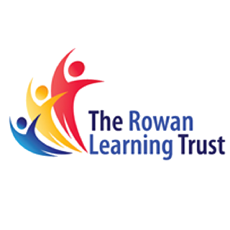History
Mission Statement
Our curriculum has been carefully shaped to inspire children’s curiosity, encouraging them to ask critical questions and enabling them to build an understanding of how modern societies are shaped by events from the past.
Intent
History is a relevant and essential part of Plantation’s broad and balanced curriculum. History underpins children’s learning to develop a good understanding of the complexity of people’s lives, the process of change, the diversity of societies and relationships between different groups, as well as some of the challenges of their time and how the past has shaped the present.
Aspirational opportunities to build substantive knowledge – using ancillary questions from the Collins History scheme, to develop and extend knowledge of the past and disciplinary knowledge – to apply the knowledge, using a range of resources including artefacts, pictures, stories, discussion and debate.
Sequenced – build on prior knowledge as tackle more complex and demanding enquiries.
Progressive – complexity of subject knowledge and developing disciplinary thinking skills supporting children to progress from basic disciplinary thinking (recognise, identify, describe, compare and contrast…), to confidently progress to higher level disciplinary thinking skills (reason, speculate, summarise, explain) to specialised disciplinary thinking skills (evaluate, apply, critique, hypothesise…)
Continuity – provision is established in EYFS – understanding the world past and present.
Inclusive – accessible curriculum to all pupils. Differentiating provision where necessary – in class support, different learning environments, alternative learning activities and assessment outcomes judged using a variety of different strategies including oral and practical when appropriate.
For the reason that 2021-2022 was the first full uninterrupted school year, implementation of the History planning in 2019-2020 still requires careful monitoring to ensure it provides the depth, coverage, skills and knowledge and meets our curriculum aims.
To continue to embed Historical vocabulary into the curriculum making it an integral part of the lessons and subject specific vocabulary is developed across the curriculum – shared in staff meetings.
To make sure all Year EYFS – Year 6 are using timelines at or close to the start of History topics to show progression, including understanding of both chronological order and duration.
To ensure that History topics show clear progression of skills demonstrating types of research, enquiry skills, chronological order, duration and impact.
For children to have opportunities to achieve more challenging subject outcomes, generating further questions to investigate.
To use and monitor manageable and meaningful assessment across History to ensure teachers are aware of where children are working at in all areas and be able measure children’s learning against end points.
Implementation
History is taught as a discrete subject with an enquiry approach containing purposeful and engaging lessons.
Book (file) look (completed November 2022) to ensure all agreed areas of the History curriculum are taking place, such as end of topic quiz or display, front covers and hooks to revisit previous learning and reinforce end points.
Learning walk (completed November 2022) and pupil voice (completed November 2022) asking Ofsted style questions about the children’s knowledge, using end points.
Regular meetings with whole school curriculum lead to discuss areas of strengths and areas for development.
Manageable assessment completed at the end of each term for subjects covered (arranged by teachers and a copy emailed to subject lead.
Children should be using both substantive knowledge (knowledge from the past) and disciplinary knowledge (method the knowledge is applied).
Impact
Impact is that endpoints, revisited in hooks during Geography blocks to recap core and additional endpoints to ensure the children retain their learning in their long term memories (sticky knowledge).
Learning walks, book looks and pupil voice is confirmation that agreed History planning and format is in place, providing evidence of Historical enquiry and both substantive and disciplinary knowledge.
Children have a strong understanding of chronological order that shows duration.
Children have a good understanding of impact.
Staff completing assessments and sending them to subject lead.
Feedback from teachers has been very positive. Children are engaged in the subject, the scheme is providing them with tools they need to deliver a high quality History curriculum.
History Long Term Planning
Please click here to view our schools History Long Term Planning.
Website/Useful Links
BBC Bitesize Key Stage 1 History
BBC Bitesize Key Stage 2 History
Oak National Academy Key Stage 1 History
Oak National Academy Key Stage 2 History

